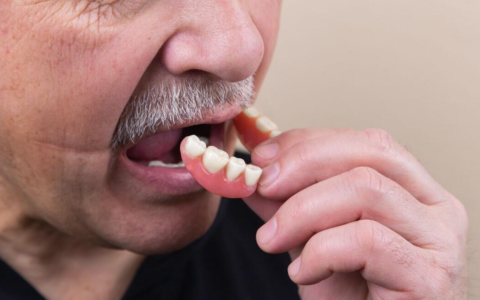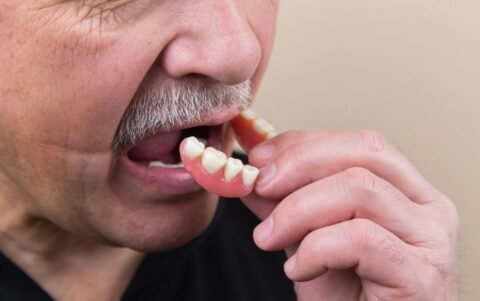Photo by National Cancer Institute on Unsplash
When it comes to skin and beauty procedures, the journey from initial consultation to aftercare is one that requires careful planning, informed decision-making, and a strong sense of self-advocacy. This is especially true for women seeking post-pregnancy skin reductions or other significant cosmetic treatments.
While full of opportunities for enhancement, the medical beauty industry is also fraught with challenges that can make the process overwhelming. However, by advocating for yourself at each stage, you can ensure that your goals are understood, your concerns are addressed, and the results are as close to your expectations as possible.
The Consultation: Laying the Foundation
The consultation is the first and arguably most important step in any skin or beauty procedure. It’s your opportunity to express your goals, discuss your concerns, and get a clear understanding of what the procedure entails. Yet, many patients face difficulties, particularly when it comes to feeling heard and understood by their medical providers.
Women seeking post-pregnancy skin reductions, for example, may have specific concerns about the changes their bodies have undergone and the impact these changes have had on their self-esteem. Unfortunately, some may find that their concerns are minimized or that their goals are not fully appreciated by their provider. This is where self-advocacy becomes crucial.
During the consultation, being clear and assertive about what you want to achieve is essential. Don’t hesitate to ask detailed questions about the procedure, including the risks, benefits, and potential outcomes. Ensure you understand the options available to you and ask for explanations if anything is unclear. Remember, this is your body and your decision, so it’s important that you feel confident and informed before moving forward.
Another key aspect of self-advocacy during the consultation is ensuring that your provider truly understands your goals. Sometimes, there can be a disconnect between what you envision and what the provider thinks is best. While it’s important to listen to their professional advice, don’t be afraid to voice your preferences and ensure they are considered. A successful procedure starts with a shared understanding of the desired outcome.
Understanding the Procedure: Informed Decision-Making
Once you’ve had a thorough consultation and decided to proceed with a skin or beauty procedure, the next step is to understand what the procedure will involve fully. This is another area where self-advocacy plays a vital role.
It’s not uncommon for patients to feel overwhelmed by the medical jargon and technical details that often accompany explanations of cosmetic procedures. However, it’s crucial that you take the time to understand these details, as they will directly impact your experience and the results you can expect.
Ask your provider to explain the procedure in terms that are easy to understand. Don’t hesitate to ask for clarification if they use complex medical terminology. You should know exactly what will happen during the procedure, how it will be performed, what the recovery process will look like, and what kind of results you can realistically expect.
Understanding the procedure also involves being aware of the potential risks and complications. While it can be uncomfortable to think about what might go wrong, being informed about these possibilities is an important part of making an empowered decision. Ask about the steps that will be taken to minimize risks and what the plan is if something doesn’t go as expected.
Self-advocacy in this stage means not settling for vague answers or feeling pressured to agree to something you’re not completely comfortable with. Your comfort and confidence in the procedure are paramount, and it’s worth taking the time to ensure that you have all the information you need to make an informed decision.
Aftercare: Ensuring Lasting Results
The importance of self-advocacy doesn’t end once the procedure is over. In fact, the aftercare stage is just as critical to achieving your beauty goals as the procedure itself. Proper aftercare can significantly impact the longevity and quality of your results, so it’s essential to be proactive in this phase.
Your provider should give you detailed aftercare instructions, but it’s up to you to follow them diligently and to speak up if you have any concerns or experience any issues during your recovery. This might include taking prescribed medications, avoiding certain activities, or attending follow-up appointments to monitor your progress.
If you notice anything unusual during your recovery, such as unexpected pain, swelling, or changes in your skin, it’s important to contact your provider immediately. Self-advocacy in this context means trusting your instincts and promptly addressing any concerns. Don’t wait for things to worsen before seeking help—early intervention can prevent complications and help you achieve the best possible outcome.
Another aspect of aftercare is managing your expectations. Even with the best care, it’s important to remember that healing takes time, and results may not be immediately apparent. Be patient with the process and communicate with your provider if you have any questions or concerns about your progress.
Overcoming the Challenges: The Power of Self-Advocacy
Navigating the medical beauty industry can be challenging, especially regarding procedures that impact your appearance and self-esteem. Women seeking post-pregnancy skin reductions, in particular, may face additional hurdles as they strive to regain their confidence and feel comfortable in their bodies again.
Self-advocacy is the key to overcoming these challenges. By being proactive, informed, and assertive at every stage of the process—from consultation to aftercare—you can take control of your experience and prioritize your goals. This doesn’t mean disregarding the expertise of your medical providers; rather, it means working in partnership with them to achieve the best possible outcome for you.
In the end, your beauty goals are personal and unique, and it’s important that they are treated as such. By advocating for yourself throughout the process, you can confidently navigate the complexities of skin and beauty procedures, ultimately achieving results that meet and exceed your expectations.

Daniel J. Morgan is the founder of Invidiata Magazine, a premier publication showcasing luxury living, arts, and culture. With a passion for excellence, Daniel has established the magazine as a beacon of sophistication and refinement, captivating discerning audiences worldwide.




